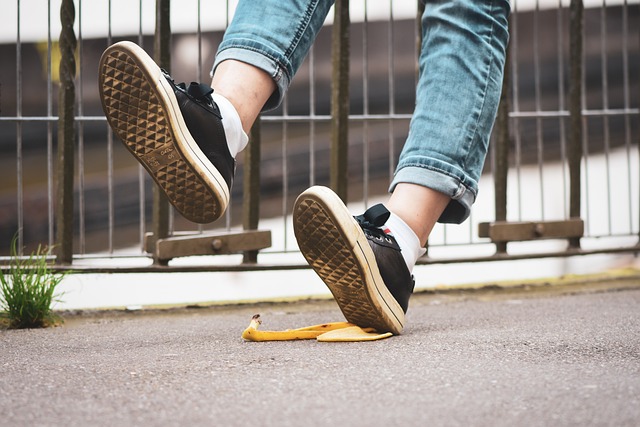Employee Rights and Employer Liability: Legal Aspects of Slip and Fall Cases at Work
In the hustle and bustle of our daily work routines, few of us consider the possibility of a slip-and-fall accident on the job. However, workplace slip and fall accidents are far from uncommon, and when they occur, the legal intricacies surrounding employee rights and employer liability come into sharp focus. This blog post explores the complex world of slip-and-fall cases at work, delving into the legal intricacies that define the rights of employees and the responsibilities of their employers.
The Common but Overlooked Hazard: Workplace Slip and Fall Accidents
In the workplace, hazards often go unnoticed, but among the most common are slip and fall accidents. Whether due to wet floors or cluttered walkways, employees frequently find themselves navigating treacherous terrain during their workday. As stated by a law firm, these accidents can have severe consequences, causing injuries, accumulating medical bills, and even leading to lost wages; moreover, it’s essential to comprehend that in the realm of slip and fall accidents, the legal intricacies come to the forefront as employees must exercise their rights and seek compensation.
Employee Rights and Legal Grounds for Compensation
When an employee experiences a slip and fall at work, they are entitled to certain rights under the law, and understanding these rights is crucial to ensure they receive the compensation they deserve. There are two primary avenues for pursuing compensation: workers’ compensation and third-party liability claims.
For many employees, workers’ compensation is the first line of defense. This insurance coverage often provides medical expense coverage, rehabilitation expenses, and partial wage replacement, all of which are crucial to an employee’s recovery.
However, there are instances where third parties may share responsibility for the accident. In such cases, employees may have grounds to file personal injury lawsuits against these negligent parties, which can result in additional compensation for the damages sustained.
Employer Liability in Slip and Fall Cases
Employers bear a legal responsibility to ensure a safe working environment for their employees, and in the case of slip and fall accidents, their liability is a central aspect of the legal intricacies. The doctrine of premises liability plays a pivotal role in holding employers accountable for maintaining a secure environment.
Premises liability places a legal obligation on property owners, including employers, to maintain safe conditions. This includes addressing and rectifying hazardous conditions, such as slippery floors or damaged walkways. When employers fail to meet this obligation, they can be held liable for any injuries sustained by their employees.
In addition to premises liability, the legal intricacies may also revolve around the concept of negligence and an employer’s duty of care. Employers owe their employees a duty of care, which involves taking reasonable steps to prevent slip and fall accidents. Negligence on the part of the employer, such as insufficient warning signs or a lack of proper training, can become the focal point of legal disputes.
Legal Defenses Employers May Use
In slip-and-fall cases at work, employers may deploy various legal defenses to minimize their liability. These defenses can complicate an employee’s claim for compensation, and it’s vital to understand them to navigate the legal intricacies effectively.
One common defense is the “assumption of risk” argument, where employers claim that the injured employee assumed the risk of injury due to their actions or failure to heed warning signs. This defense can introduce complexity into the employee’s compensation claim.
Comparative negligence is another defense frequently employed. This legal doctrine allows the court to assess the degree of fault for both the employer and the employee. If the employee is found to have contributed to their accident, the amount of compensation they receive may be reduced accordingly.
Moreover, employers may argue that they had no prior notice of the hazardous condition that led to the slip and fall, which can reduce their liability. These defenses form a crucial part of the legal intricacies surrounding slip and fall cases at work.
The Role of Legal Representation
Navigating the complex legal intricacies of workplace slip-and-fall cases often necessitates the assistance of legal professionals. Attorneys specializing in personal injury law are adept at advocating for the rights of injured employees.
Legal professionals play a pivotal role in investigating accidents and collecting evidence that establishes employer liability. This process often involves examining workplace conditions, gathering witness statements, and reviewing maintenance records.
In many cases, attorneys negotiate with employers and their insurance providers to secure a fair settlement for the injured employee. If negotiations fail, they may pursue litigation, presenting a compelling case to a judge and jury to ensure the employee receives just compensation.
Conclusion: Balancing the Scales of Justice
Slip and fall accidents at work can disrupt lives, but the legal intricacies surrounding employee rights and employer liability offer a path to balance the scales of justice. Employees have right to compensation when injured at work, and employers have a legal obligation to provide a safe environment.
As the legal system seeks to navigate the complexities of these cases, the goal is clear: to ensure that employees receive the compensation they deserve. Balancing the scales means not only holding employers accountable but also empowering employees to assert their rights and receive the support they need to recover and move forward. In the end, understanding the intricacies of employee rights and employer liability in slip-and-fall cases at work is an essential step toward ensuring justice is served. The intersection of law and workplace safety is where employees find protection, and employers find accountability.

